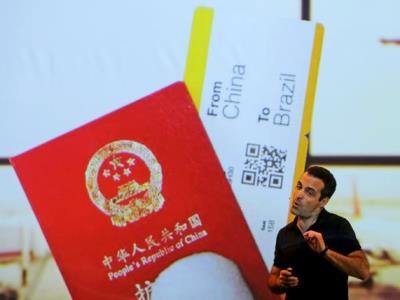Chinese smartphone maker Xiaomi has started selling devices in Brazil with the aim to undercut rivals in terms of price as part of its expansion plan into Latin America, Reuters reported.
Hugo Barra, Xiaomi's global vice president, said in an interview on June 30, Tuesday, that Brazil was the first stage in the company's Latin American launch, as he pointed out that Mexico and Colombia may be the next steps in the region. He did not say when the launch will be made on the other two countries.
Xiaomi expressed confidence that an affordable tag price will attract the attention of Brazilians who are conscious about spending, and the company launched their devices without traditional advertising or stores.
"We offer high-quality products at incredibly aggressive prices, so we're starting with larger developing markets where people are very price-sensitive," Barra told Reuters.
Barra also announced that Xiaomi would offer entry-level Redmi 2 smartphone on sale in Brazil next week for 499 reais ($160), as the phones are already being manufactured in an assembly line outside of Sao Paulo run by Foxconn Technology Group, the same manufacturer that has made Apple's iPhone in the country since 2011.
The report said that an unlocked Brazilian iPhone sells for more than $1,000, one of the highest prices in the world and well above what they sell for in the United States, which are out of the reach of ordinary Brazilians.
Xiaomi has chosen Brazil as its first smartphone market outside of Asia as it tries to focus on emerging consumer markets, working in from the edges of a global market dominated by giants such as Apple Inc and Samsung Electronics Co.
Brazil's smartphone market is also at an inclined level where users swap their older phones for smartphones to keep up their social-media habits. According to market research firm IDC, the sales of smartphone in the country have jumped 55 percent to 54.5 million units last year despite the stagnant growth of the economy.
As the fifth-highest selling smartphone brand in the world, Xiaomi aims to break into the Brazilian market with its novel business model, Barra said. To win the loyalty of users, they offered low profit margins on handsets and other more profitable home electronics and accessories.



























